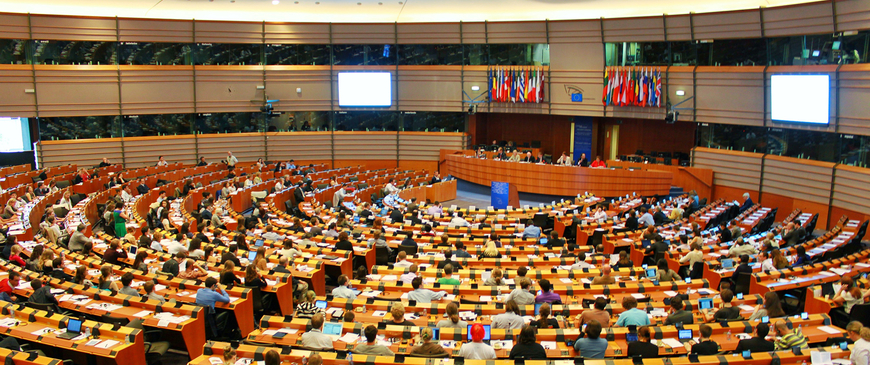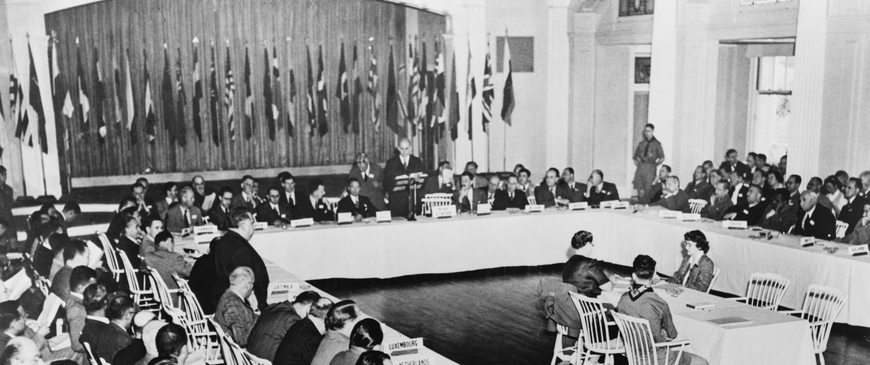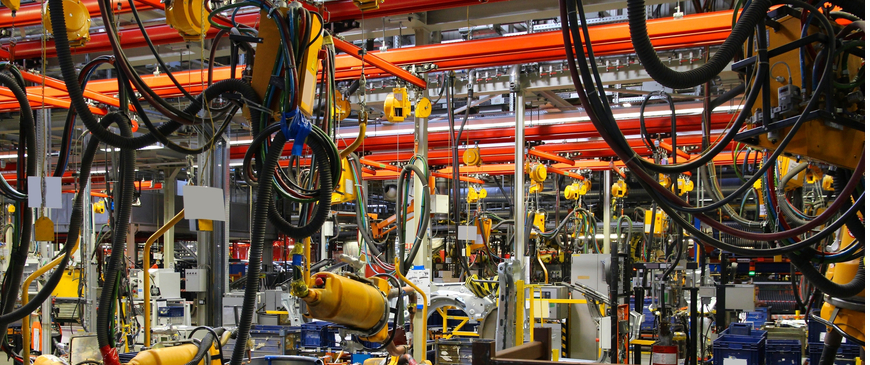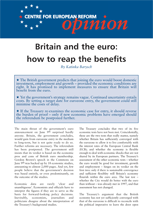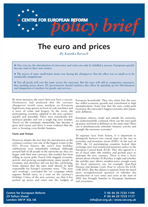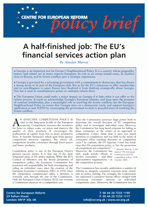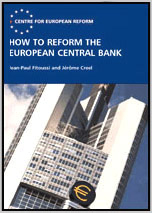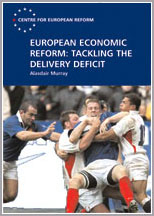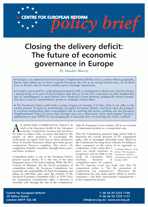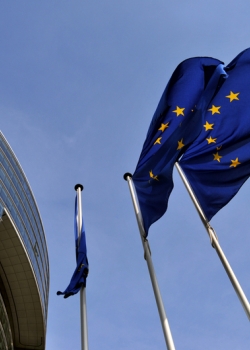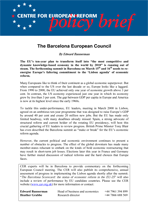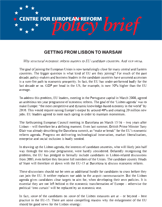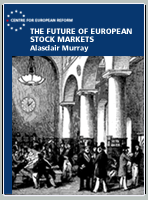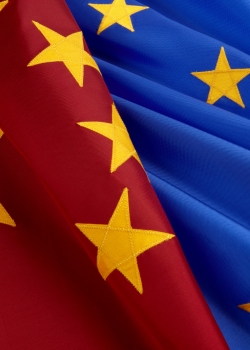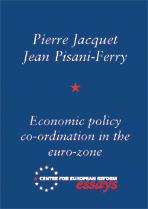Macroeconomics & the euro
Britain and the euro: How to reap the benefits
06 June 2003
The British government predicts that joining the euro would boost domestic investment, employment and growth – provided the economic conditions are right. It has promised to implement measures to ensure that Britain will benefit from the euro.
The euro and prices
03 January 2003
By most measures, the euro’s first year been a success. Doomsayers had predicted that the currency changeover would cause mayhem on European highstreets, long queues in front of cash machines and a wave of crime and forgery. In the event, the participating countries adapted to the new currency quickly and...
A half-finished job: The EU’s financial services action plan
01 November 2002
At the Lisbon summit in March 2000, EU heads of government signed up to an ambitious programme designed to achieve a viable single market in financial services by 2005. The financial services action plan (FSAP) is an attempt to reduce the legal obstacles which still prevent businesses – whether retail...
How to reform the European Central Bank
11 October 2002
Europe's macro-economic policy framework is in trouble. Eurozone inflation continues to overshoot the ECB's 'reference value' of 2 per cent. Yet businesses and policy-makers are pleading with the ECB for lower interest rates.
European economic reform: Tackling the delivery deficit
04 October 2002
The EU has set itself a series of ambitious economic reform goals but has so far failed to deliver on its promises. Alasdair Murray argues in this report that the Convention on the future of Europe and the forthcoming inter governmental conference provide an opportunity for the EU to think afresh about how it can overcome the institutional obstacles to economic reform.
New rules for capital markets
01 August 2002
The fallout from the Enron and WorldCom corporate scandals in the United States will resonate through global securities markets for years to come.
Issue 24 - 2002
31 May 2002
- A 'competence catalogue' is code for protectionism, Ulrike Guérot
- Europe's future is in Ireland's hands , Daniel Keohane
- Playing the European game , Antonio Missiroli
The Barcelona scorecard: The status of economic reform in the enlarging EU
03 May 2002
Only a new 'High Representative for Economic Policy' can ensure the EU meets its 2010 target of becoming "the most dynamic and competitive knowledge-based economy in the world".
Closing the delivery deficit: The future of economic governance in Europe
03 May 2002
The EU has set itself a series of highly ambitious economic goals to fulfil in the next decade. Eurozone countries are committed to ensuring the longterm health of the single currency, which will mean further economic integration. The Union will need to incorporate successfully at least ten dynamic but diverse...
Issue 23 - 2002
29 March 2002
- Restoring leadership to the European council , Charles Grant
- The EU needs a flexible pact , Alasdair Murray
The Barcelona European Council
01 March 2002
The EU's ten-year plan to transform itself into "the most competitive and dynamic knowledge-based economy in the world by 2010" is running out of steam. The forthcoming summit in Barcelona on March 15 and 16 needs to reenergise Europe's faltering commitment to the 'Lisbon agenda' of economic reform.
Getting from Lisbon to Warsaw
18 February 2002
The goal of joining the European Union is now tantalizingly close for many central and Eastern countries. The bigger question is what kind of EU are they joining? For much of the past decade, policy-makers and business leaders in the candidate countries have assumed accession is a sure-fire path to economic prosperity.
The euro comes of age
03 December 2001
A dozen years after the Delors Committee produced a plan for Economic and Monetary Union, the euro finally becomes a reality for 300 million Europeans this January.
The future of European stock markets
04 May 2001
Alasdair Murray look at how the absence of a single market in equities within the EU increases the cost of capital and restricts Europe's ability to close the economic gap with the United States.
The stockholm scorecard
02 April 2001
The Stockholm European Council was supposed to focus on Europe's "new" economy and the goal of creating "the world's most dynamic and competitive knowledge-based economy by 2010".
Issue 17 - 2001
30 March 2001
- The stockholm scorecard, Edward Bannerman
- An EU senate is superfluous, Richard Corbett
- Don't legislate on consultation, James Wilson
Making Lisbon work in Stockholm
01 February 2001
Even by the standards of the EU's often optimistic policy aspirations, the decade-long economic reform process initiated at the Lisbon summit last March represents an ambitious programme.
The distinctive feature of the Lisbon conclusions is not the pledge of EU leaders to create "the most competitive and dynamic knowledge...
The distinctive feature of the Lisbon conclusions is not the pledge of EU leaders to create "the most competitive and dynamic knowledge...
Issue 16 - 2001
26 January 2001
- Turning East: Europe Courts Asia, Edward Bannerman
- Opening Europe's final frontier, Carl Bildt
- Making Lisbon work in Stockholm, Alasdair Murray
Economic policy co-ordination in the eurozone: What has been achieved? What should be done?
05 January 2001
Now that the euro has stabilised, Greece has joined EMU and the EU has committed itself to enlargement, the time is right to consider these critical issues of economic governance.
The "open method of co-ordination": Innovation or talking shop?
01 December 2000
At the 'dot.com' Summit AT Lisbon in March 2000, the EU set itself the strategic goal of creating full employment in a competitive and inclusive knowledge-based economy.

